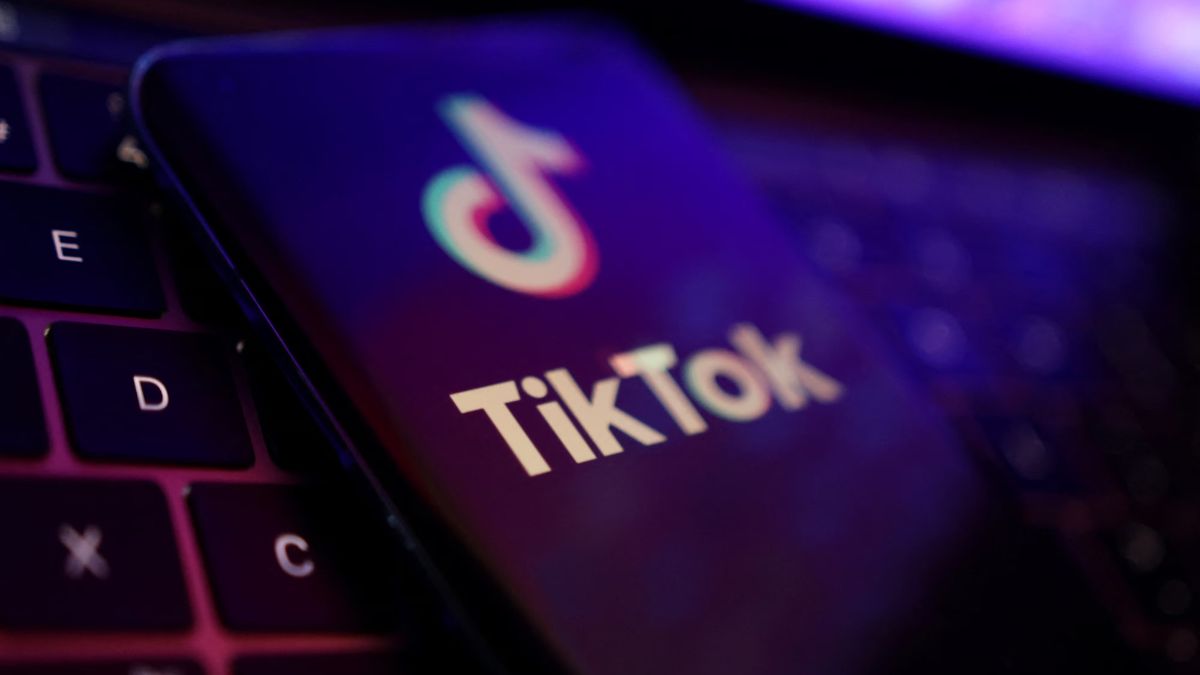TikTok's Rollercoaster Ride: From Ban to Presidential Pardon - What's Next?
Get ready for a wild ride! TikTok, the app that's taken the world by storm, has been on a crazy rollercoaster journey. Just when it looked like the curtain was falling, President Trump stepped in with a dramatic twist! This article delves into the unpredictable saga of TikTok's fight for survival in the US and the surprising presidential intervention that threw a lifeline to the popular video-sharing app. We'll unpack the political turmoil, the controversies surrounding national security concerns, and explore the future implications of this high-stakes drama.
The TikTok Ban and the Political Storm
In 2020, the US government threatened a complete ban on TikTok due to national security concerns. The concern centered around data security, specifically the potential access the Chinese government could have to US user data. The debate raged on, sparking fears and uncertainties for millions of TikTok users. Many wondered: would they lose access to their beloved app forever? The looming ban prompted a frantic search for solutions, with VPN searches spiking as users desperately tried to maintain access to their accounts. This created panic among American TikTok users, influencers, and businesses who relied on the app. The potential loss of TikTok wasn’t simply a matter of personal entertainment. Businesses built upon it, brands engaged with it, and users found communities within its confines.
The Political Backlash and Data Security Fears
The proposed ban sparked a fiery political debate. Critics argued it was an overreach of government power and a misguided attempt to stifle free expression. Yet, the government’s argument rested on valid concerns. Opponents maintained that the app posed a threat to US national security because of the potential of China's influence through TikTok and ByteDance, TikTok's Chinese parent company. The uncertainty and fears around user data security in a world increasingly intertwined with technology drove intense debate and a clash of political ideology and commercial interest.
Trump's U-Turn: A Presidential Lifeline?
In a dramatic turn of events, President-elect Donald Trump announced that he would be taking steps to ensure TikTok's survival in the US. This shocking announcement came amidst political tensions between the US and China, making the reversal even more intriguing. The move to allow TikTok's services to be reinstated baffled some, pleasing others, but generally fueled already high levels of political tension surrounding the US-China relationship.
The Deal and the Controversy: National Security Concerns Linger
The proposed deal required TikTok to operate as a joint venture. Even with Trump's approval, many Republicans criticized the arrangement, arguing that the security risk remained unresolved. Powerful members of the US government such as Senator Tom Cotton, remained opposed to TikTok’s return unless ByteDance severed ties and sold the U.S. operations. A key question was the degree to which a US government ownership stake in any joint venture could ensure data protection and alleviate national security anxieties. Concerns of influence-peddling on a vast social media platform remained, further complicating the debate.
Potential Buyers Emerge and the Billion-Dollar Question
Following Trump's decision to overturn the TikTok ban and President Biden’s election, the political winds regarding TikTok continued to shift. With its potential worth estimated at a staggering $50 billion, numerous players showed interest in potentially acquiring TikTok’s U.S. operations. This fueled considerable speculation and generated uncertainty as to the final outcome of the dispute between the U.S. and China.
The Musk Factor and Other Suitors: Will a Deal Be Struck?
Reports surfaced about Elon Musk being in talks to purchase the US operations, yet TikTok officially denied these rumors. Other potential buyers further emerged, all vying for a share in the lucrative market of short-form video content. Yet, given the considerable legal and political uncertainty still attached to a purchase, few companies appeared to be serious bidders. Meanwhile, users across the country eagerly waited to see who would win this high-stakes auction. And it is likely that if a purchase went through, the social media landscape of the U.S. could have permanently changed.
The Uncertain Future: What's Next for TikTok?
TikTok’s ongoing story in the U.S. continues to be nothing less than a wild ride. The issue has become more significant due to the app’s high popularity among younger demographics. It demonstrates how commercial enterprise and foreign policy become inextricably linked in an age when large tech companies and social media platforms influence billions worldwide. Will further measures be put in place to safeguard the privacy of TikTok users and mitigate any potential national security risks? Only time will tell whether this dramatic episode will conclude with a lasting resolution or lead to a protracted dispute over technological supremacy.
Take Away Points
- TikTok's journey in the US has been a rollercoaster, highlighting the tension between national security and the influence of technology on the US government and social life.
- Trump's intervention created a surprising shift but left lingering concerns about data security.
- Multiple parties continue to express interest in a future takeover, indicating a significant role for TikTok in global social media.
- The future of TikTok in the U.S. remains highly uncertain, despite its huge and growing fanbase across the globe.









